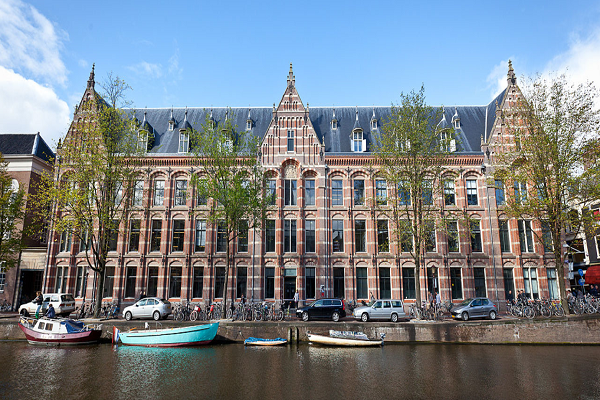University of Amsterdam: When the village gets bombed
When villages get bombed survival becomes central in parents’ everyday lives. Parents no longer worry if they will bring their children to school on time, but whether their children will actually come back home from school, alive. Many parents leave their lands with their children and seek refuge in foreign countries. After all, “no one puts their children on a boat unless the water is safer than the land” (Warsan Shire, British poet). While some aspects of daily life might improve for them, new stressors surface like learning a new language, finding a matching job and living with a marginalized social status. These new and daily stressors could diminish parents’ ability at adapting to having been exposed to war and settling in a foreign place.
Hend Eltanamly
Until recently most research focused on war-related trauma as explanation for adjustment problems among war-affected populations. ‘But we need to also understand the role of daily stressors that are linked to the constant need to adapt to a new context, while dealing with war-related trauma, in real life and real-time’, states Child Development researcher Hend Eltanamly.
Less parental warmth and more harshness under war conditions
First, a review of the literature showed that some of the adverse effects of war exposure on child development are passed on by parents. On the one hand, war exposure leads to less parental warmth and more harshness, and more problematic outcomes in children. On the other hand, Eltanamly and colleagues suggest that not only the amount of war exposure, but also the nature of the trauma that they experienced seemed to matter in how parenting was shaped in times of war. ‘This finding implies that it is not only a dose-response ratio, how much trauma, but also what families have experienced and the nature of traumatic exposure plays a vital role in shaping parenting in times of war’, states Eltanamly.
In depth interviews with recently resettled refugee parents
Parents reported similar stories under war conditions, while fleeing and while displaced. ‘Families had to focus on survival, where they prioritized things such as are-taking activities, leaving little room for individual differences in parenting’, explains Eltanamly. ‘Shortage of finance, co-housing, role-strain, family separations, and loss of status seemed to influence parenting in rather similar ways among the refuge parents.’ Parents expressed that their active engagement and monitoring of their children dropped steadily and picked up again in resettlement, while harshness increased reaching a peak in displacement to drop once again in resettlement. Resettlement stories of parenting showed more differences between families, with some families being more engaged with their children and others more controlling. ‘Recovering from emotional exhaustion and parental self-efficacy could help explaining these divergent accounts of parenting in resettlement’, thinks Eltanamly.
Parental self-efficacy central in the lives of refugee families
Eltanamly calls parental self-efficacy central in the lives of refugee families in resettlement. ‘When parents live in countries where they do not fully grasp the cultures, norms, and values, they might question whether they can indeed parent their children up to their aspirations. The more parents felt they were being treated as outsiders and the more they longed for their home countries the less they felt that they were capable to do so.’ This translated into giving children less autonomy and room to express their opinions.
Eltanamly found that ‘when [refugee] parents granted their children autonomy they felt more efficacious, and not the other way around.’ This shows that refugee parents value listening to their children, giving them a chance to make different decisions, and considering their children’s point of view, as it feeds their own sense of efficacy as parents.
A brief-focused intervention can support refugee parents
To test whether a brief-focused intervention can make refugee parents’ self-efficacy less vulnerable to negative contextual factors, Eltanamly and colleagues used an experiment where refugee parents were given tailored positive feedback on their parenting. They used stories about parenting which the parents had shared in an earlier interview to show them the positive impact of their parenting on their children. This brief intervention did indeed increase parental self-efficacy and made it less vulnerable when confronted with post-migration stressors.
‘The study shows that parenting is one way through which war affects children’, concludes Eltanamly. ‘Above and beyond the impact of war trauma, the stressors that refugee parents deal with on a day-to-day basis shape the way they think about themselves as parents and the way they actually “do” their parenting. But the findings also imply that while parental self-efficacy is context-dependent, it can be made more sturdy in the face of day-to-day post-migration stressors in refugee families.’

